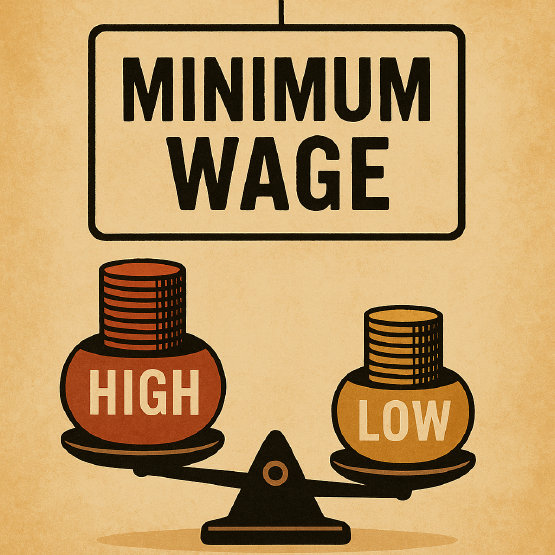Regional minimum wage differentialization, not balance but fracture
Introduction - You cannot put a price tag on where people live
Everyone deserves a fair reward at the end of a day's work. This reward is not just a matter of money it is a societal promise for a life worthy of respect. However, this promise is currently being adjusted based on geography. While some call it a 'realistic measure', hidden within it is a new standard of discrimination where 'where you live' determines 'what treatment you receive'. The 'regional differentiation of minimum wage' is a quiet rupture that shakes the basic standard of life. This article seeks to listen to that hidden vibration. It aims to explore both the dangers lurking behind superficial logic and the path toward truly people-centered regional balanced development.
Differentiate minimum wage, differentiate minimum living standards
The minimum wage is the lowest line of life set by society. No matter what job one does or where one lives, it is also a standard of minimal dignity that one should receive above that line. However, the idea of setting this standard differently under the name of regions carries a dangerous message that 'the value of life varies depending on the space.' Moreover, the logic wrapped in terms like 'cost of living' or 'productivity' is no different from an attempt to cheapen the lives of those living in specific areas. What sustains people is not statistics, but relationships, communities, and the recognition of life.
Cracks Accumulating Under the Name of 'Differentiation'
In the real world, so-called 'low minimum wage' acts as a benchmark that drags down the wages of the entire region. This, in turn, constricts the local purchasing power and even diminishes the motivation for businesses to invest. Ultimately, small business owners and merchants face a decline in customers, the population decreases, schools close down, and hospitals reduce in number. This trend does not simply end with population outflow. The lives of those who remain become increasingly thin and collapse. Differentiation is not a policy but a signal. It is a quiet yet powerful invitation to exit, indicating that there is no value in staying in that region.
Discrimination is not a number, but a structure.
It may seem outwardly economic rationality. However, dividing minimum wage by region essentially means offering different compensation for the same labor. This is not just institutional discrimination, but it assigns class to the way society views people. Worse still, this discrimination is justified in the name of rationality. When the perception spreads that some can receive more and some can receive less, the community ultimately begins to crack slowly. And that crack starts to crumble quietly from the weakest point.
On the collapsing land, I ask again - it is not 'region' but 'people'.
The current reality is closer to a situation that is gradually tilting in neglect rather than being actively led by someone's hand. In the current anarchic structure, there is a disappearance of both accountable subjects and coordinating systems. Therefore, more than ever, balanced development must start from a re-recognition of human value, not just from systems or budgets. Instead of regional differentialization of the minimum wage, the priority should be to create conditions where people can live with dignity in all regions. It involves attracting industries, balancing education, health, culture, and living environments. It is about creating towns where people want to stay rather than just roads that can be moved. It is a structure that places quality of life at its center, not profit. Such changes are needed.
Conclusion - Now it's time to talk about life's balance
The differential minimum wage by region leaves a greater scar on the sustainability of the community than on the consistency of calculations. What we should uphold is equity in life, rather than economic efficiency. People who live under the same sky on the same land should not be treated differently simply based on where they live. True regional balance does not start with cutting minimum wages. On the contrary, it begins with creating reasons for everyone to want to live in every region, as sustainability exists within that. The practice of putting price tags on places where people live must stop now. The value of a person is dignified regardless of location, and without this foundation, no growth is possible.

Post a Comment